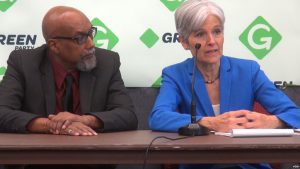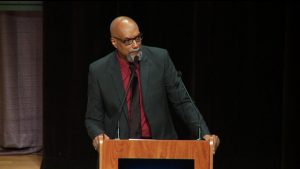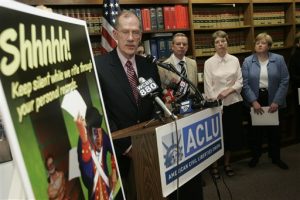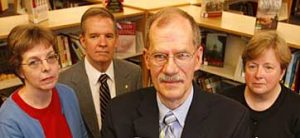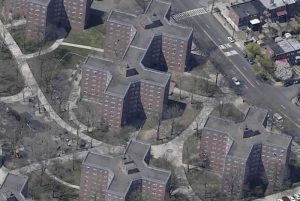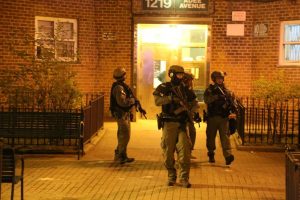Podcast: Play in new window | Download
Green Party Vice Presidential Candidate Ajamu Baraka
Here on Law and Disorder we continue our interviews with candidates other than the two major parties. This week we talk with Green Party Vice Presidential Candidate Ajamu Baraka.
Guest – Ajamu Baraka is a longtime activist, veteran of Black Liberation Movement, Human Rights defender, Former founding director of US Human Rights Network, currently Public Intervenon for Human Rights with Green Shadow Cabinet, member of Coordinating Committee of Black Left Unity Network and Associate Fellow at IPS. He’s on a long time board member of the Center for Constitutional Rights and a human rights defender whose experience spans three decades of domestic and international education and activism, Ajamu Baraka is a veteran grassroots organizer whose roots are in the Black Liberation Movement and anti-apartheid and Central American solidarity struggles. Black Agenda Report
—-
The Connecticut Four
More than ten years ago four librarians in Connecticut fought back after FBI agents handed them National Security Letters seeking library records under the PATRIOT Act, and warned them it was a criminal offense to discuss it with anyone. The letter demanded that the librarians identify patrons who had used library computers online at a specific time a year earlier. Four librarians challenged the legality of the request in a lawsuit, represented by the ACLU. A year later the government withdrew the demand for information and the gag order. The media dubbed them “the Connecticut Four.”
Recently they have reunited to draw attention to attempts by the U.S. Senate to expand the amount and kinds of information that the government may compel libraries and others to divulge. It could force librarians to give the FBI transaction records, such as email metadata, links clicked on to access other websites and the length and time of Internet search sessions.
Guest – George Christian, executive director of the Library Connection and one of the four Connecticut librarians gagged by the FBI. The four librarians, members of the Library Connection, sought help from the ACLU after the FBI demanded patron records through a National Security Letter.
—-
The Bronx 120
Just before 5 in the morning on April 27, 700 law enforcement officers conducted the largest gang raid in NY history in the Williamsbridge section of the North Bronx. Prosecutors used the 1970 RICO Act, and 78 young men averaging 24 years in age were arrested and indicted 120 on conspiracy charges. All are being detained collectively for 8 murders and firearms and drug charges dating back two decades. In one apartment, more than a dozen police threw flash-bang grenades and broke down the front door with assault weapons aimed at Paula Clarke and her two daughters, then forced them to crawl down their hall on all fours toward the officers.
At a press conference, police characterized the young men as “the epitome of organized crime today.” Cooperating federal agencies included the DEA, the ATF, the US attorney general, and ICE’s Homeland Security Investigations. Community members question this portrayal, saying the young men were not highly organized gangsters terrorizing a community; they lacked money and weapons and were living at home with their parents.
Critics claim that applying RICO to to street gangs has racist implications. Under RICO, individuals can be found guilty by association. Despite gang-related crime accounting for less than 2 percent of city crime, two weeks after the raid, James O’Neill, now NYPD Commissioner, promised 20 more raids before July 4.
The department quadrupled its gang division by launching Operation Crew Cut in 2012. A 2014 initiative has spent over $64.6 million on surveillance cameras and singled out 15 projects as high-crime zones; at least ten of those projects have experienced police raids.
Guest – Cindy Gorn is a former teacher of Urban Studies at Hunter College and a member of the Incarcerated Workers Organizing Committee.
